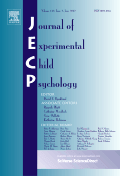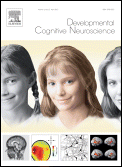
DEVELOPMENTAL NEUROPSYCHOLOGY
Scope & Guideline
Unlocking the Secrets of Developmental Neuropsychology
Introduction
Aims and Scopes
- Neurodevelopmental Disorders:
The journal investigates various neurodevelopmental disorders, including ADHD, autism spectrum disorders, and developmental coordination disorder, focusing on their cognitive, behavioral, and emotional impacts. - Cognitive Development and Functioning:
Research on cognitive processes such as executive function, working memory, and attention in children and adolescents, including how these functions are affected by various biological and environmental factors. - Impact of Environmental Factors:
Studies examining the influence of prenatal and early life exposures (e.g., substance exposure, trauma) on neurodevelopmental outcomes and cognitive functioning. - Intervention and Assessment:
Exploration of assessment tools and interventions designed to support children with developmental challenges, including systematic reviews and meta-analyses of existing literature. - Cross-Cultural and Socioeconomic Influences:
Research that addresses how cultural and socioeconomic factors influence neurodevelopmental outcomes and cognitive processes in diverse populations.
Trending and Emerging
- Impact of Bilingualism on Cognitive Development:
Recent studies have increasingly examined how bilingualism influences executive functioning and cognitive development in children, emphasizing the cognitive benefits of bilingual exposure. - Effects of Trauma and Stress on Development:
There is a growing focus on the biopsychosocial effects of trauma, particularly in siblings of individuals with neurodevelopmental conditions, reflecting a broader interest in the impacts of adverse experiences on cognitive and emotional outcomes. - Neurocognitive Outcomes in Pediatric Populations:
Research centered on neurocognitive outcomes in specific pediatric populations, including those with cancer or congenital conditions, has gained traction, indicating a need for tailored assessments and interventions. - Longitudinal Studies on Executive Function:
The trend towards longitudinal studies examining the development of executive function over time reflects a deeper understanding of how early cognitive skills predict later outcomes across various domains. - Technological Integration in Assessments:
Emerging themes include the use of technology in assessing cognitive functions and interventions, showcasing innovation in the field and a shift towards more interactive and engaging assessment methods.
Declining or Waning
- Traditional Cognitive Assessments:
There appears to be a decline in studies solely focused on traditional cognitive assessments without considering contextual or environmental factors, suggesting a shift towards more holistic approaches. - Neuropsychological Profiles in Isolation:
Research focusing exclusively on neuropsychological profiles without integrating behavioral or social-emotional factors is less prevalent, indicating a move towards more integrated models of understanding development. - Generalized Studies on Learning Disabilities:
The exploration of broad learning disabilities without specificity to neurodevelopmental conditions has decreased, highlighting a trend towards more targeted investigations.
Similar Journals

ANNEE PSYCHOLOGIQUE
Advancing the Frontiers of Psychology and the HumanitiesANNEE PSYCHOLOGIQUE is a prestigious academic journal published by PRESSES UNIV FRANCE, dedicated to advancing the fields of psychology and the arts and humanities. With an ISSN of 0003-5033 and E-ISSN 1955-2580, this journal has been a vital resource for psychological research since its inception in 1952. Over the decades, it has achieved a strong reputation, reflected in its 2023 category quartiles, ranking Q1 in Arts and Humanities (miscellaneous) and Q3 in Psychology (miscellaneous). With a significant focus on innovative psychological theories, empirical studies, and interdisciplinary approaches, ANNEE PSYCHOLOGIQUE appeals to a diverse audience of researchers, professionals, and students keen to explore cutting-edge developments in their field. Researchers will find that the journal's rigorous peer-review process ensures high-quality contributions, while its publication scope from 1952 to 2024 underscores its historical significance. Although currently not open access, the journal remains a key player in disseminating influential scholarship and discussions that shape the future of psychology and related disciplines.

MERRILL-PALMER QUARTERLY-JOURNAL OF DEVELOPMENTAL PSYCHOLOGY
Advancing Understanding in Developmental PsychologyMERRILL-PALMER QUARTERLY: JOURNAL OF DEVELOPMENTAL PSYCHOLOGY, published by Wayne State University Press, stands as a vital resource in the field of developmental psychology. Established in 1973, this peer-reviewed journal spans research focused on the psychological, social, and educational development of individuals throughout their lifespan. With a current impact factor reflected in its quartile rankings, including Q2 in Education and Q2 in Social Sciences for 2023, the journal serves as a notable platform for scholars aiming to disseminate findings that contribute to theoretical and practical advancements in these domains. Researchers and professionals benefit from the journal's commitment to rigorous scholarship, providing insights that bridge educational psychology and social sciences. Although not open access, its valuable contributions are crucial for both academic study and applied practices within developmental psychology.

Frontiers in Human Neuroscience
Connecting Minds: Where Neuroscience Meets Behavioral ScienceFrontiers in Human Neuroscience is a premier open access journal published by FRONTIERS MEDIA SA, dedicated to advancing the understanding of the complexities of human neuroscience. With an ISSN of 1662-5161, the journal has established its prominence in various fields, achieving a Q2 ranking in categories such as Behavioral Neuroscience, Neuropsychology and Physiological Psychology, and Psychiatry and Mental Health as of 2023. Since its inception in 2008, Frontiers in Human Neuroscience has consistently contributed to the scholarly dialogue by offering a platform for innovative research that bridges the gap between neuroscience and behavioral science. The journal's rigorous peer-review process and commitment to open access ensures that findings are readily available, promoting collaboration and progress within the academic community. With an impact on neuroscience disciplines, it stands at the forefront of the field, inviting researchers, professionals, and students alike to engage with cutting-edge studies and developments. The journal's address is located in Lausanne, Switzerland, where it continues to flourish as a hub for neurobiological exploration.

Acta Neuropsychologica
Transforming Understanding Through Cutting-Edge ResearchActa Neuropsychologica is a notable journal in the fields of Neuropsychology and Applied Psychology, published by the reputable MEDSPORTPRESS PUBLISHING HOUSE since 2005. With an ISSN of 1730-7503 and an E-ISSN of 2084-4298, this journal serves as an essential resource for researchers, professionals, and students interested in advancements in neuropsychological science and its applications. While the journal currently holds a Q4 ranking in both categories for 2023, it continues to provide a platform for cutting-edge research and theoretical discussions, contributing to the understanding of psychological processes and their physiological underpinnings. Situated in Poland, the journal's focus on interdisciplinary approaches offers insights into various therapies, cognitive functions, and neurological assessments, making it a valuable asset for those involved in psychological research. As the field evolves, Acta Neuropsychologica is poised to play a critical role in fostering knowledge dissemination and academic dialogue.

Cuadernos de Neuropsicologia-Panamerican Journal of Neuropsychology
Connecting researchers and clinicians for impactful discoveries.Cuadernos de Neuropsicologia-Panamerican Journal of Neuropsychology is a premier open access journal dedicated to advancing the field of neuropsychology through the dissemination of high-quality research. Published by NEUROPSICOLOGIA CL in Chile, this journal has been a vital resource for the academic community since its inception in 2007. With a focus on various aspects of neuropsychological theory and practice, the journal aims to bridge the gap between research and application, addressing key issues in diagnosis, treatment, and rehabilitation of cognitive disorders. By providing a platform for innovative studies, systematic reviews, and compelling case reports, Cuadernos de Neuropsicologia plays an instrumental role in shaping the future of neuropsychology in the Pan-American region and beyond. Researchers, clinicians, and students alike will find this journal invaluable for staying informed on the latest trends and findings in their field.

JOURNAL OF EXPERIMENTAL CHILD PSYCHOLOGY
Innovating the Study of Child Psychology Through Empirical ResearchJOURNAL OF EXPERIMENTAL CHILD PSYCHOLOGY, published by Elsevier Science Inc, stands as a premier outlet for high-quality research in the fields of Developmental and Educational Psychology and Experimental and Cognitive Psychology. With an impressive impact factor and recognized within the Q1 category for both developmental and experimental psychology, this journal is dedicated to advancing our understanding of child psychology through rigorous empirical research and theoretical contributions. Indexed with an ISSN of 0022-0965 and E-ISSN 1096-0457, it is a vital resource for scholars aiming to explore the complexities of children's cognitive, social, and emotional development from 1964 to 2024. Engaging with this journal provides researchers, professionals, and students access to cutting-edge findings that inform practice, policy, and future studies in the ever-evolving landscape of child psychology.

DEVELOPMENTAL PSYCHOLOGY
Pioneering Innovative Studies in PsychologyDEVELOPMENTAL PSYCHOLOGY is a prestigious journal published by the American Psychological Association, dedicated to advancing the field of developmental psychology through rigorous research and insightful analysis. With an impact factor that ranks it in the Q1 category for Demography, Developmental and Educational Psychology, and Life-span and Life-course Studies, this journal stands as a leading resource for scholars and practitioners alike. Since its inception in 1969, it has provided a platform for innovative studies that address crucial questions surrounding human growth and development across the lifespan. The journal is recognized for its high-quality contributions, as reflected in its impressive Scopus rankings, positioning it within the top tiers of its field. Although it is not an open-access publication, it remains an essential reading for those invested in understanding the complexities of development across various stages of life. Published quarterly, DEVELOPMENTAL PSYCHOLOGY plays a critical role in shaping future research agendas and informing practical applications in educational and clinical settings.

AGING NEUROPSYCHOLOGY AND COGNITION
Championing research for a brighter cognitive future.AGING NEUROPSYCHOLOGY AND COGNITION, published by ROUTLEDGE JOURNALS, TAYLOR & FRANCIS LTD, is a leading scholarly journal that spans the interdisciplinary fields of psychology, neuropsychology, and gerontology. With a strong focus on understanding aging processes and cognitive function, this journal serves as a critical platform for researchers, clinicians, and students dedicated to advancing knowledge in the realm of cognitive aging. The journal, established in 1994, presents high-quality research articles, comprehensive reviews, and innovative studies that contribute to the discourse surrounding mental health and aging. Notably, it has been recognized with a 2023 Q2 ranking in Experimental and Cognitive Psychology and Neuropsychology categories, reflecting its significant impact within these domains. The journal includes open access options, making it widely accessible to a global audience. Researchers interested in the latest findings and theoretical developments in aging neuropsychology will find this journal an invaluable resource, further enhanced by its robust Scopus rankings and commitment to academic excellence through 2024 and beyond.

Journal of Pediatric Neuropsychology
Exploring the complexities of children's cognitive development.Journal of Pediatric Neuropsychology is a pioneering academic journal dedicated to advancing the field of pediatric neuropsychology. Published by SpringerNature, this journal serves as a vital platform for researchers, clinicians, and students aiming to explore the complexities of neuropsychological development in children. With ISSN 2199-2681 and E-ISSN 2199-2673, the journal focuses on a broad spectrum of topics including cognitive processes, neurological disorders, and the impact of neuropsychology on educational and therapeutic practices. Though currently not listed as an Open Access journal, it aims to disseminate knowledge that influences clinical practices and supports interdisciplinary collaboration. The Journal of Pediatric Neuropsychology stands out for its commitment to enhancing understanding within this specialized field, making it an essential resource for professionals and researchers dedicated to improving outcomes for children with neuropsychological challenges.

Developmental Cognitive Neuroscience
Exploring the intricate ties between cognition and neural development.Developmental Cognitive Neuroscience is a leading interdisciplinary journal published by ELSEVIER SCI LTD, dedicated to advancing the field of cognitive neuroscience with a specific focus on the developmental aspects of brain function and behavior. Since its inception in 2011, this Open Access journal has continued to thrive, gaining significant recognition with a remarkable impact factor that places it in the Q1 category of cognitive neuroscience, ranking 22nd out of 115 in Scopus. This enhances its visibility and accessibility to a global audience, including researchers, clinicians, and students keen on exploring the intricate relationship between cognitive development and neurological processes. The journal embraces a wide array of topics, from the impact of early life experiences on cognitive outcomes to neurodevelopmental disorders, fostering an enriching platform for disseminating high-quality research and innovative findings. As it progresses towards 2024, Developmental Cognitive Neuroscience remains pivotal in shaping future research and understanding in the field.